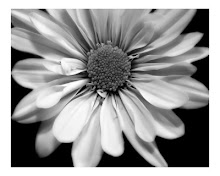 This is an entertaining poem that describes money as though it has the characteristics of multiple living things. The first stanza implies that money is a wild animal, wild in the sense of free of any human connections, yet it is "willing to be domesticated." The next stanza describes it as a small creature that can fit in a pocket. The words "nest," "soft," and "curl up" suggest a cozy, furry little animal, like a mouse. The third stanza moves on to describe money as a dog - likable, it attracts other people, etc. The tides change, however, in the fourth stanza when the speaker describes money has a self-absorbed amoeba. The fifth stanza then returns to treating money like an animal that needs care, exercise, and watering (sixth stanza). In the second to last stanza, the description of money as something humans master, yet it turns on them, may be referring to a circus animal; perhaps a lion or tiger that obediently learns and performs all of the tricks, but one day turns and bites its trainer from out of the blue. The final stanza refers to money as a snake, or some animal with venom, that can kill its victim in 30 seconds. As the poem progresses, t describes the gradual transformation of money from a harmless little mouse, to a deadly snake. The speaker may have had some personal experience with money similar to this one, and this poem may be his warning to others to not get this involved with money or try to master it.
This is an entertaining poem that describes money as though it has the characteristics of multiple living things. The first stanza implies that money is a wild animal, wild in the sense of free of any human connections, yet it is "willing to be domesticated." The next stanza describes it as a small creature that can fit in a pocket. The words "nest," "soft," and "curl up" suggest a cozy, furry little animal, like a mouse. The third stanza moves on to describe money as a dog - likable, it attracts other people, etc. The tides change, however, in the fourth stanza when the speaker describes money has a self-absorbed amoeba. The fifth stanza then returns to treating money like an animal that needs care, exercise, and watering (sixth stanza). In the second to last stanza, the description of money as something humans master, yet it turns on them, may be referring to a circus animal; perhaps a lion or tiger that obediently learns and performs all of the tricks, but one day turns and bites its trainer from out of the blue. The final stanza refers to money as a snake, or some animal with venom, that can kill its victim in 30 seconds. As the poem progresses, t describes the gradual transformation of money from a harmless little mouse, to a deadly snake. The speaker may have had some personal experience with money similar to this one, and this poem may be his warning to others to not get this involved with money or try to master it.A literary device used in this poem is, in a way, personification. That is probably not the correct term, however, money is an inanimate object given animal traits instead of human traits. This allows the speaker room to make a large variety of comparison to encompass all of the various characteristics of money. Instead of saying: people will like you more because you have money, the speaker compares money to a dog. Dog is man's best friend; people walk up to complete strangers just to pet their dogs and may become friends because of it; a man's adorable puppy may be what causes two soul mates to meet in a movie. The reader now sees people buddying up to someone because of their money and a woman pursuing a wealthy man to secure her financial future. Now the money has taken on a living, breathing influence, that is stronger than a green piece of paper.
Hyperbole is used in the last stanza, when money is said to have the ability to kill. Of course this is unrealistic, and instead of literally physically killing a person, this implies an emotional death. Money can buy many wonderful things - it can feed thousands of hungry people, put roofs over heads, fund research to cure epidemic diseases, etc. Money can also destroy someone's life. It is a well-known fact that many of those who have won the lottery through the years end up with more miserable lives than before they had won the money. Some people get so caught up in the face value of money, all of the pretty things it can buy, the high status it gives them, etc., that when they run out, they are completely lost and utterly helpless. Because they relied on it to make them "happy," they know no other way to recreate this happiness. Money cannot buy happiness. That is also a well-known fact. This is the emotional death the speaker is referring to. That plummet into total darkness when all that someone has relied upon turns its back and leaves them.
This free verse poem is very simple - no complicated rhyme scheme, pattern, or meter. The speaker is merely stating facts, one per stanza. He is just putting out the warning, plain and clear for everyone to read: beware of money, for it can kill you.


No comments:
Post a Comment